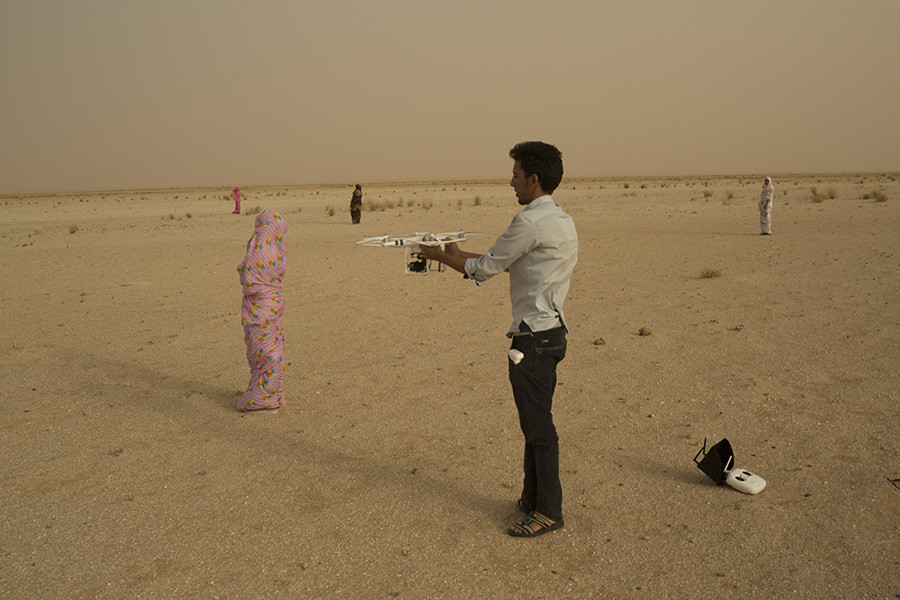
Trail of Hope
MasterCard Foundation Scholar, Mohamed Echkouna, on themaking of his film
I am a storyteller, a part of a new generation of young African filmmakers who are determined to bring stories from the continent to the world.
In a few weeks, I will be releasing Trail of Hope, a film I am producing as my final project as a film student at Savannah College of Art and Design.
The film opens on Abdallahi, a self-centered taxi driver from Nouakchott, Mauritania, as he drives miles on the deserted highway to Nouadhibou. He is stopped by Mariam, a young woman living in the countryside, who asks for a ride back to the city.
When he drops Mariam at her house, Abdallahi realizes that she has forgotten papers she will need for her Baccalaureate-prep exams. He retraces his steps, knocking at the front door of her house. But Mariam is not there.
Cheikh, Mariam’s father, tells Abdallahi the story of his daughter, an 18 year old who was very passionate about her education. He sadly explains that when a man asked for Mariam’s hand in marriage, they had no choice but to agree to the match, that it would have been culturally unthinkable to refuse their daughter to a man from their tribe.
But it was an unhappy marriage, Mariam’s husband abused her. And one night, Mariam died at the hands of her husband.

Mariam’s story is fictional. But it is also the story of countless women in my native Mauritania, and a story I hope will change the way we think of women’s rights in my home country.
Film is very powerful. It can take you through an emotional ride, give you answers to questions, become a part of you, an experience that takes you through what is right, and what is wrong. Film can change the way we see the world.
It’s why I wrote Trail of Hope. I wanted to address social issues like women’s rights in Mauritania, from within the culture so that people might relate to the story, to the issues. I wanted to create a story that persuades, not one that tells you, “this is wrong.” I wanted to use lighting, cinematography, all these techniques that I’ve been learning at (SCAD), to create a psychological experience that makes you feel, that makes you understand that something is wrong and you have to act on it.
Film can also change the way we think of Africa. If a film is set in Africa, the first thing you think about are terrible images, of naked people running through the woods, of hunger, of war, disease and poverty.
That’s not where I live. That’s not what Africa is all about. I want to change that image of Africa through film and show a more positive image.
As an African storyteller, I want to recreate stories – like Mariam and Abdallahi’s story – from within my culture and in a positive way. Africa deserves stories made by Africans, about African heroes, with African music and African artists. African countries and cultures are so different from each other – we need to be exposed to each other from different points of view.
Film is a powerful tool to change the way we see Africa. When I return to my community, I will tell stories – stories inspired by real life experiences, blended with magic and fantasy. But above all, I will tell African stories.
Mohamed Echkouna is a MasterCard Foundation Scholar in the Akwanya Program. He is finishing his studies at the Savannah College of Art and Design in Georgia, USA.


